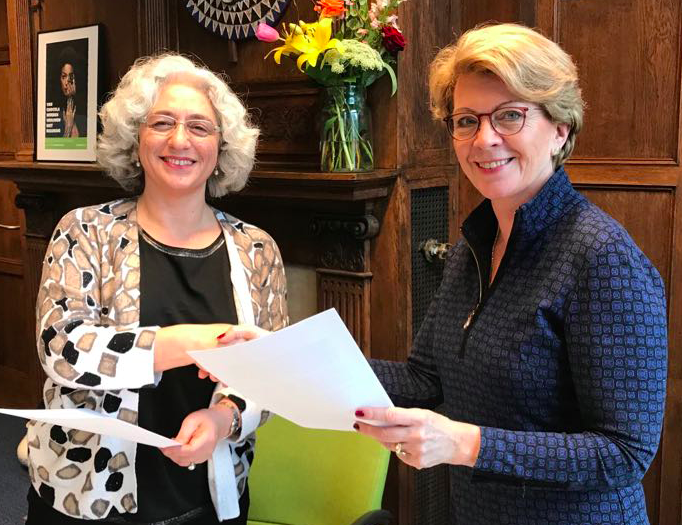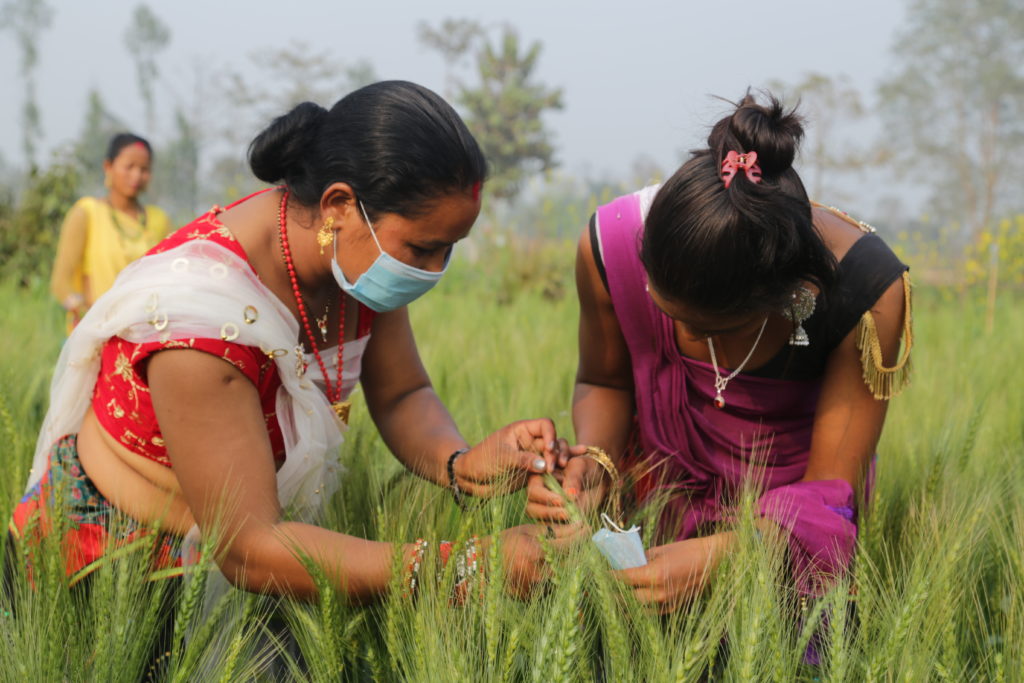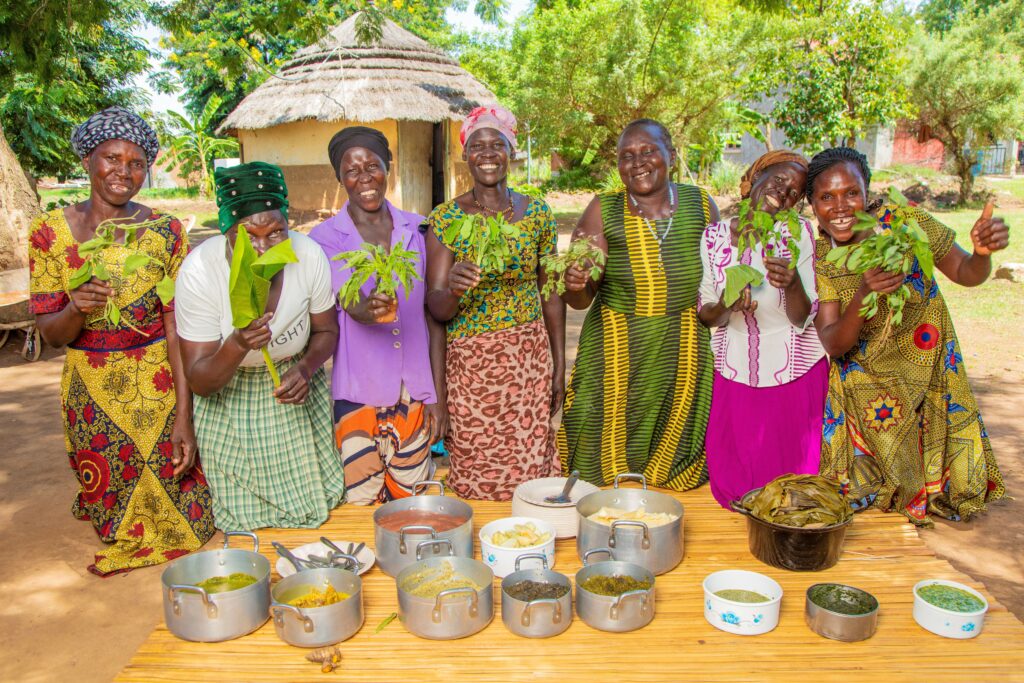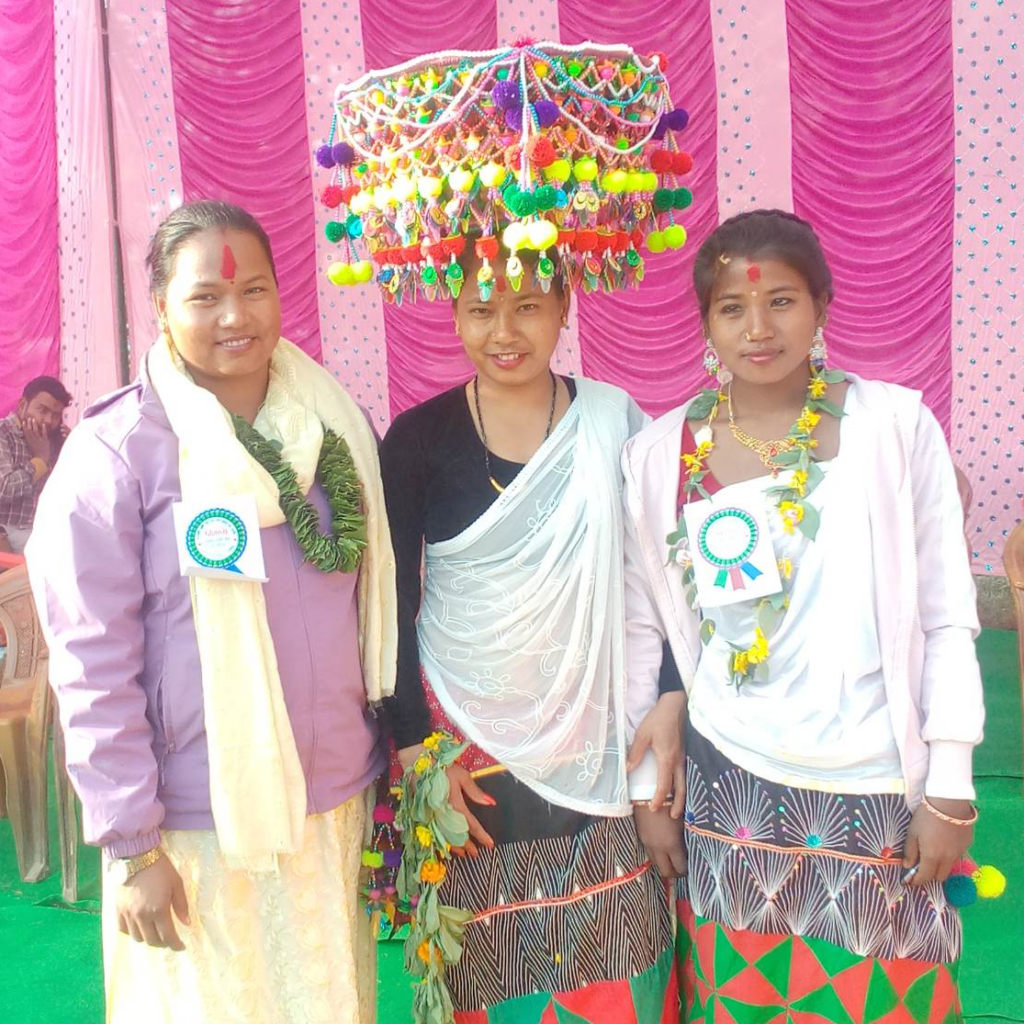Crop diversity is essential for life on earth. It is at the basis of our food and nutrition security. The Global Crop Diversity Trust ensures the conservation and availability of crop diversity. Oxfam Novib complementarily strengthens smallholder farmers in their rights to access and benefit from our planet’s variety of plant genetic resources. The Global Crop Diversity Trust and Oxfam Novib are convinced that by active collaboration their impact can be increased.
On January 25, Marie Haga (executive director of the Global Crop Diversity Trust) and Farah Karimi (executive director of Oxfam Novib) signed the intention to collaborate on current and future programs as well as to develop joint programs on climate change resilience and crop diversity in smallholder systems.
Diversity for resilience
Despite its importance to food security, much of the world’s crop diversity is neither safely conserved, nor readily available to scientists and farmers. Farmers are the (traditional) managers and protectors of biodiversity and they rely on it to safeguard their agricultural productivity. Especially in areas that are affected by climate change, access to biodiverse plant genetic material can be lifesaving. Farmers can sow a higher variety of seeds to reduce the risk of losing their harvest and develop varieties that are more resilient to their local circumstances.
‘The world is rapidly changing,’ says Farah Karimi, ‘but what remains constant in the Farmer Field Schools in our programs is the demand for
more seeds and new breeding materials. Biodiversity conservation through use is an important component of Sustainable Development Goal 2: Zero hunger. Oxfam Novib is excited to build a partnership with the Global Crop Trust, which should enable us to further facilitate exchange of seeds and knowledge and conservation through use.’
A shared mission
The Global Crop Diversity Trust supports collections of plant genetic resources in genebanks. These collections together make up for around 800.000 samples of landraces and wild species, containing a vast array of traits and characteristics. The Global Crop Diversity Trust wishes to further promote the use of these collections.
Through it’s Sowing Diversity=Harvesting Security program, Oxfam Novib has successfully increased farmers’ access to crop diversity by matching the crop demands of farmers to varieties available at local genebanks and breeding institutions. SD=HS and its partners have established Community Seed Banks, through which farmers can safely store and exchange seeds. In the
SD=HS Farmer Field Schools, farmers’ capacity to adapt crops to their own needs in highly diverse environmental and socio-economic conditions is strengthened.
‘The Crop Trust is thrilled to enter into this new partnership with Oxfam Novib,’ confirms Marie Haga. ‘We are truly impressed by the organization’s efforts to address poverty by working directly with those affected, and I’m confident that through this collaboration, we can build on these important relationships to help improve farmers’ access to a greater diversity of crops for a more prosperous future.’
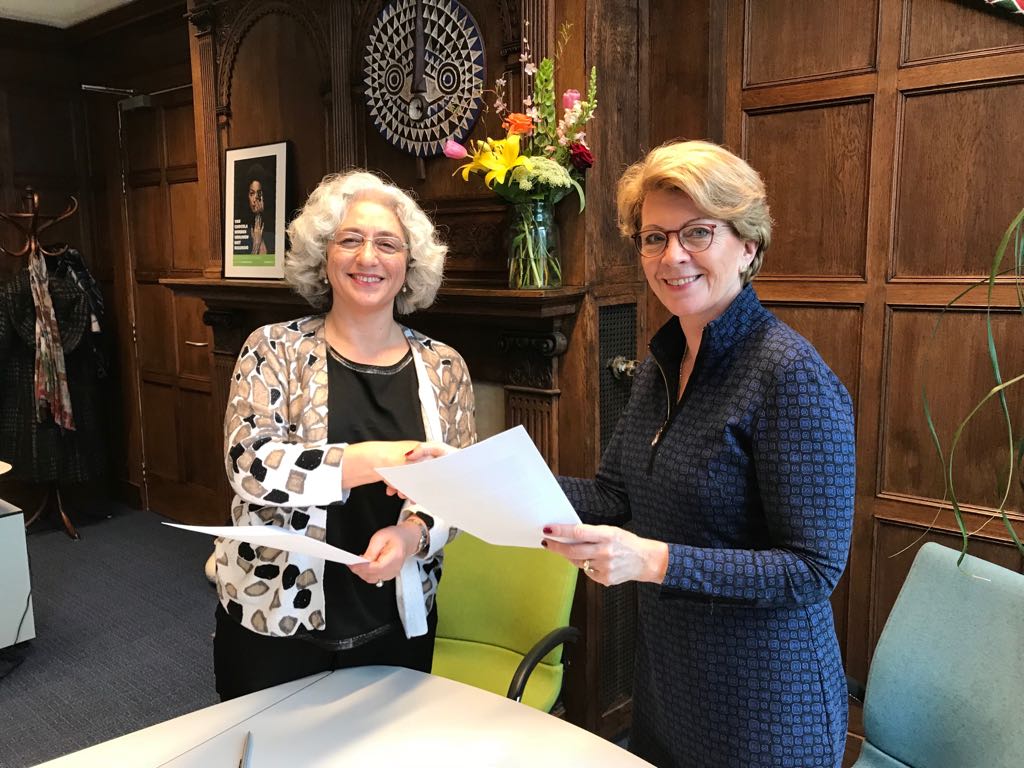
Food Forever initiative
The intention to collaborate is symbolized by Oxfam Novib joining the Food Forever Initiative as a partner to raise awareness on the importance and urgency to conserve and use agricultural biodiversity. By joining this initiative, Oxfam Novib has signed the ‘declaration of interdependence’. The declaration states among other things that ‘no one should suffer from hunger, food insecurity and malnutrition,’ that ‘we must safeguard the diversity of resources for future generations,’ and that ‘sharing of the benefits of this diversity and its associated knowledge is key.’
By establishing a collaboration between Oxfam Novib and the Global Crop Diversity Trust, both organizations aim to contribute with greater impact to the United Nations Sustainable Development Goal (SDG) Target 2.5. It states: “By 2020, maintain the genetic diversity of seeds, cultivated plants and farmed and domesticated animals and their related wild species, including through soundly managed and diversified seed and plant banks at the national, regional and international levels, and promote access to and fair and equitable sharing of benefits arising from the utilization of genetic resources and associated traditional knowledge, as internationally agreed”.

